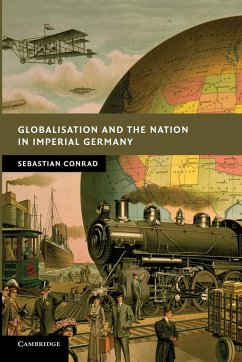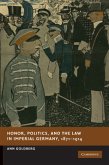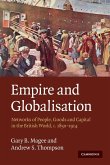Translation of award-winning study of the development of German nationalism in a global context. German society and the dynamics of German nationalism were profoundly changed prior to 1914 by the exchange of goods and capital, imperial expansion, the circulation of people and ideas and the integration of labour markets. This is the first account to set German nationalism within the process of globalisation.
The process of globalisation in the late nineteenth century had a profound effect on the trajectories of German nationalism. While the existing literature on the subject has largely remained within the confines of national history, Sebastian Conrad uses the example of mobility and labour migration to show to what extent German nationalism was transformed under the auspices of global integration. Among the effects of cross border circulation were the emergence of diasporic nationalism, the racialisation of the nation, the implementation of new border regimes, and the hegemony of ideological templates that connected nationalist discourse to global geopolitics. Ranging from the African colonies, China and Brazil to the Polish speaking territories in Eastern Europe, this groundbreaking book demonstrates that the dynamics of German nationalism were not only negotiated in the Kaiserreich but also need to be situated in the broader context of globalisation before the First World War.
The process of globalisation in the late nineteenth century had a profound effect on the trajectories of German nationalism. While the existing literature on the subject has largely remained within the confines of national history, Sebastian Conrad uses the example of mobility and labour migration to show to what extent German nationalism was transformed under the auspices of global integration. Among the effects of cross border circulation were the emergence of diasporic nationalism, the racialisation of the nation, the implementation of new border regimes, and the hegemony of ideological templates that connected nationalist discourse to global geopolitics. Ranging from the African colonies, China and Brazil to the Polish speaking territories in Eastern Europe, this groundbreaking book demonstrates that the dynamics of German nationalism were not only negotiated in the Kaiserreich but also need to be situated in the broader context of globalisation before the First World War.
'No one has done more than Sebastian Conrad to bring global perspectives into the very centerground of historical debate inside Germany. This book demonstrates with compelling concreteness the difference that doing history transnationally can make.' Geoff Eley, University of Michigan, Ann Arbor








